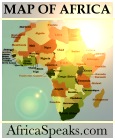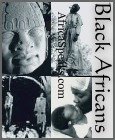Time to take the bull by the horns
Posted: Friday, August 16, 2002By Elton Dzikiti Recently in Malaysia, herald.co.zw
SOME developing countries in Africa and Asia have embarked on a programme to counter inaccurate and biased news reports disseminated by Western news agencies and media houses.
Although this appears to be an onerous task considering the limited resources available in the developing countries, the participants are determined to put in a good fight.
Leaders from the concerned countries have pledged to back the project, dubbed the Smart News Network International (SNNi).
The Internet will be heavily relied upon to offer alternative voices to stories carried mostly by Western media institutions like Reuters, AFP, the British Broadcasting Corporation and Cable News Network.
SNNi was launched in August last year in Kampala, Uganda by host president Yoweri Museveni, Mozambican leader Joachim Chissano and Malaysian premier Dr Mahathir Mohamad.
It encompasses a number of media organisations from some African countries, Malaysia and other nations, which subscribe to the concept of smart partnership.
Current participating members include the Daily News of Botswana, Bernama, The New Strait Times, The Star and Utusan Malaysia — all of Malaysia, the Mozambique News Agency, Namibia Today, BuaNews (South Africa), New Vision (Uganda) and The Herald (Zimbabwe).
More players from Africa have already expressed interest in joining the network, which has started producing encouraging results since its inception.
The New Ziana (Zimbabwe) is also due to join the network, while other news agencies and media houses in the Republic of Guinea, Malawi, Ghana and Laos are expected to follow suit.
The thrust involves daily contribution of accurate, fair and balanced news items — including photographs and video images — by the members to the SNNi website (www.snni.org).
Newspapers or agencies from participating countries can then access that site and use stories filed by members on their respective countries.
That would, it is hoped, provide the developing countries with objective, fair, accurate and balanced news about their peer nations as opposed to reports from or supported by the West.
More than 20 senior journalists from Africa, Malaysia and Laos recently attended a workshop in Kuala Lumpur, Malaysia, on SNNi.
Malaysian Minister of Foreign Affairs, Mr Seri Syed Hamid Albar, told the scribes that most Western media organisations were prone to projecting a distorted and slanted coverage of developing countries.
"They tend to highlight our failures instead of our successes. They choose to interpret events to suit their own agendas rather than to report facts objectively," Mr Albar said.
"They try to impose their so-called journalistic values and judgment on us in the name of Press freedom and freedom of expression without taking into consideration the local circumstances, conditions and sensitivity peculiar to our countries or region."
He said on the other hand, the Western countries were more often than not projected in positive light.
Countries of the South, he added, have over the last two decades started to marshal their own forces to create channels to distribute their own news and information.
"Various regional media groupings have grown up to disseminating news about their countries among one another, thereby providing alternative sources of news and information other than those from the Western media."
He said there was evidence that such exchanges of news helped to provide objective and accurate news and information to the outside world in efforts to counter the distortion and half truths or even fabrications that some Western-based media organisations churn.
Chairman of the SNNi project, Mr Tan Sri Kamarul Ariffin, said journalists were expected to uphold the principles of natural justice, one of which is audi alterem partem (listening to the other side).
"Unfortunately, some of them deliberately ignore the basic ethical standard of fair and accurate reporting by succumbing to political or ethnic bias, and worse by being downright dishonest," said Mr Ariffin.
He also criticised coverage of developing countries by global media players, which he said was from "their own blinkered perspective with scant regard for alternative views".
"It is not uncommon for the global television networks and news agencies to slant their stories to suit the vested interest of their political or corporate masters.
"News disseminated by certain wire agencies have not always been fair and balanced, and accordingly they must be regarded with care and circumspection."
A few days after the workshop, leaders attending the Langkawi International Dialogue challenged the media to report objectively and accurately about events in the so-called Third World.
They also encouraged journalists from the developing world to start trusting each other and rely on news items generated by them and not from "parachute journalists".
In opening the dialogue, Prime Minister Mohamad said when governments in developing democracies are stable and remain in power for long, even if democratically elected and above board, they are accused of being undemocratic.
"The international media and the governments of the liberal countries will all work hard to undermine these countries. They cannot bring themselves to believe that the people want it this way. They cannot believe that the natives they had ruled before understand democracy and the rule of law."
He said the international media fabricates stories that if developing democracies were stable, then the leaders must be dictators.
"Or they would report, despite evidence on the contrary, that these leaders were ignored by the people, that the people fear them.
"For the media and the Western governments there is nothing right that these governments of the natives can do. And because they have convinced themselves through their own lies that these governments are bad, they would do their best to destabilise these countries. They would support and encourage anyone, NGOs in particular, to overthrow the government."
Describing the practice as economic terrorism Mr Mohamad said to fend it off, developing countries must work together within their own borders and between countries.
He acknowledged that although the countries were weak and client states largely dependent on aid and loans, it was still possible to take a common stand in the fight.
"In this we are not alone. There are forces within the rich countries themselves which are with us and we can enlist their help."
During a session at the LID whereby leaders turned the tables and grilled journalists, the theme was mainly on why the developing countries were always portrayed negatively.
The leaders included President Mugabe, Mr Mohamad, South African Deputy President Jacob Zuma, Mozambique Prime Minister Pascoal Mocumbi, Ghana’s President John Kufuor, President of Sudan Colonel Al-Bashir, Uganda Vice-President Specioza Kazibwe, King Mswati of Swaziland, Dr Pakalitha Mosisili of Lesotho and former Botswana premier Ketumile Masire.
In Zimbabwe, the Minister of State in Vice-President Msika’s office, Dr Olivia Muchena, this week called upon black consciousness movements across the world to create their own media houses.
She told a delegation of visiting Americans that there was need to educate the world, starting with the United States congress, about the actual situation in Zimbabwe.
"It is completely weird that the US Congress sits down and decides to impose sanctions on Zimbabwe when they get their information from CNN an the BBC who have no moral obligation to judge us.
"Zimbabwe is an independent jurisdiction and therefore must not be persecuted on account of false reports by the Western media," said Dr Muchena.
This growing realisation by the so-called developing countries to tell their own stories is set to change the way events have been reported, bringing relief to governments and leaders long demonised unjustly by biased media organisations.
Reproduced from:
http://www.herald.co.zw/index.php?id=13172&pubdate=2002-08-16Printer friendly version
Send page by E-Mail

Previous Page | Zimbabwe Watch | Historical Views | Home
NOTICE: All articles are the copyright property of the writers. In accordance with Title 17 U.S.C., section 107, some material on this site is provided without permission from the copyright owner, only for purposes of criticism, comment, scholarship and research under the "fair use" provisions of federal copyright laws. Visit: http://www.law.cornell.edu/uscode/17/107.shtml for more details. If you wish to use copyrighted material from this site for purposes of your own that go beyond 'fair use', you must obtain permission from the copyright owner.










